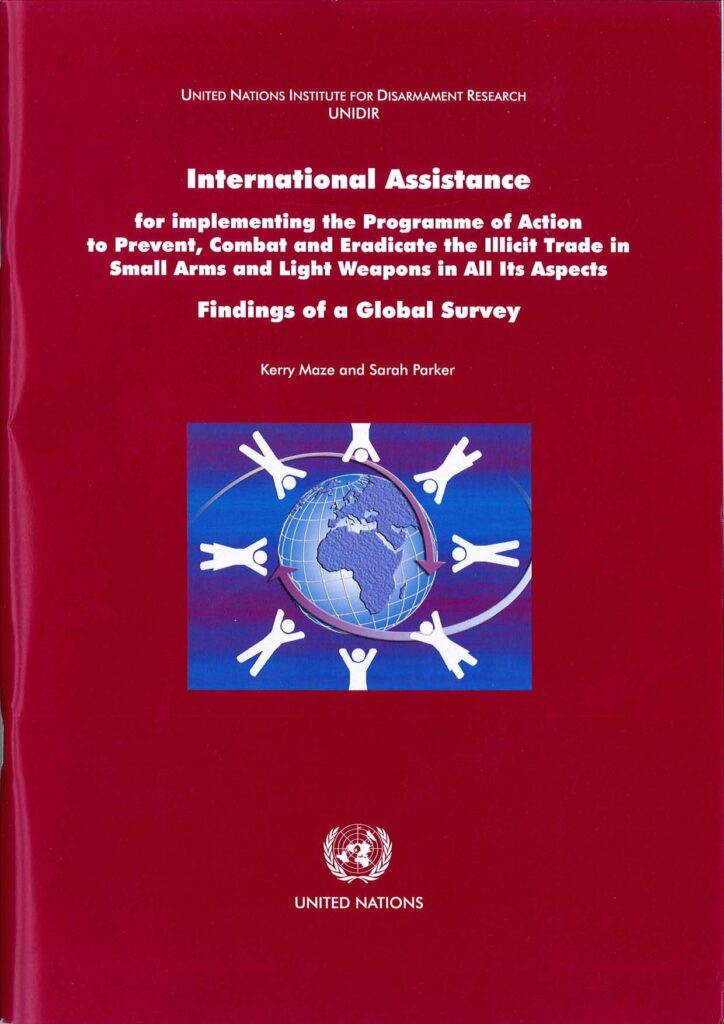The negative impacts of small arms and light weapons (SALW) are usually felt most strongly in states that have the least capacity to address the issue. International assistance, both financial and technical, is thus critical for alleviating the humanitarian impacts of SALW and for preventing, combating and eradicating the cycle of violence perpetuated by the illicit trade of these weapons. Recognizing this, when Member States of the United Nations agreed in 2001 to the Programme of Action to Prevent, Combat and Eradicate the Illicit Trade in Small Arms and Light Weapons in All Its Aspects (PoA), they included a number of provisions to encourage states and multilateral organizations to mobilize resources and to provide assistance when in a position to do so.
Since the PoA’s inception, much activity has taken place.
Considerable resources have been mobilized and financial and technical assistance have been provided. However, it has not been clear what level of assistance is being provided, where resources are being mobilized from and where technical and financial assistance to implement the PoA is flowing to. It is not clear if there are specific issues that are receiving more assistance than others, or if some important issues are being neglected. There is no overall awareness of the degree of coordination and coherence in technical and financial assistance. Thus, we do not know whether needs are being met by the resources that exist.
The report represents an attempt to capture and analyse data on assistance, and is intended to be a starting point for future analysis, discussion and understanding of this issue. It begins by briefly summarizing how the PoA addresses international assistance, followed by a description of the methodology for compiling and interpreting the data of a global survey on international PoA assistance. The report concludes with a summary of the project findings and puts forward recommendations to help states, organizations and implementing agencies improve the ways in which assistance is sought and provided. The body of the report focuses on the global perspective of international assistance. Regional overviews and a summary of assistance to the Least Developed Countries (LDCs) are provided in Annex A.
Citation: Kerry Maze and Sarah Parker (2006). "International Assistance for Implementing the Programme of Action to Prevent, Combat and Eradicate the Illicit Trade in Small Arms and Light Weapons in All its Aspects (Findings of a Global Survey)", UNIDIR, Geneva.
